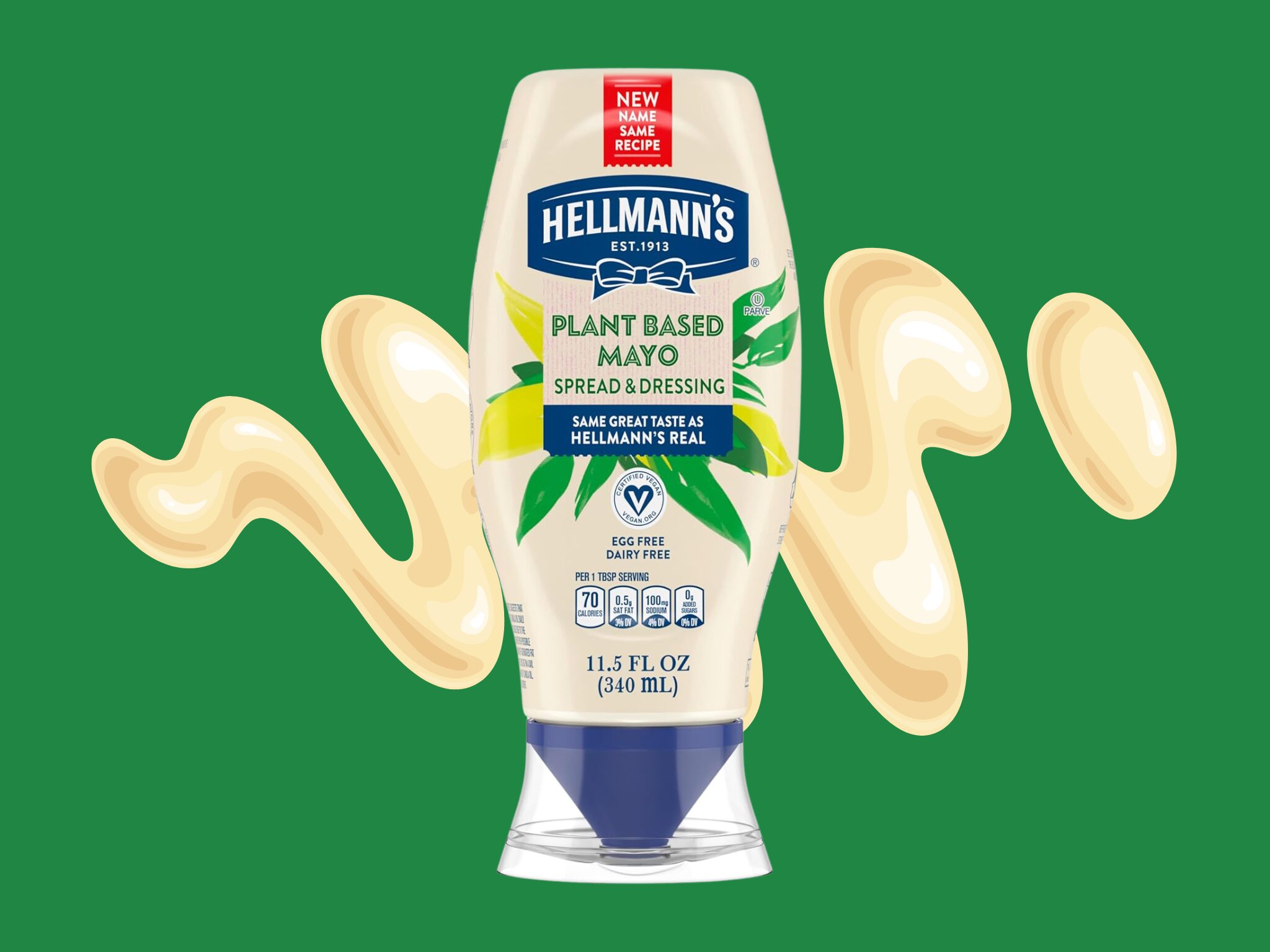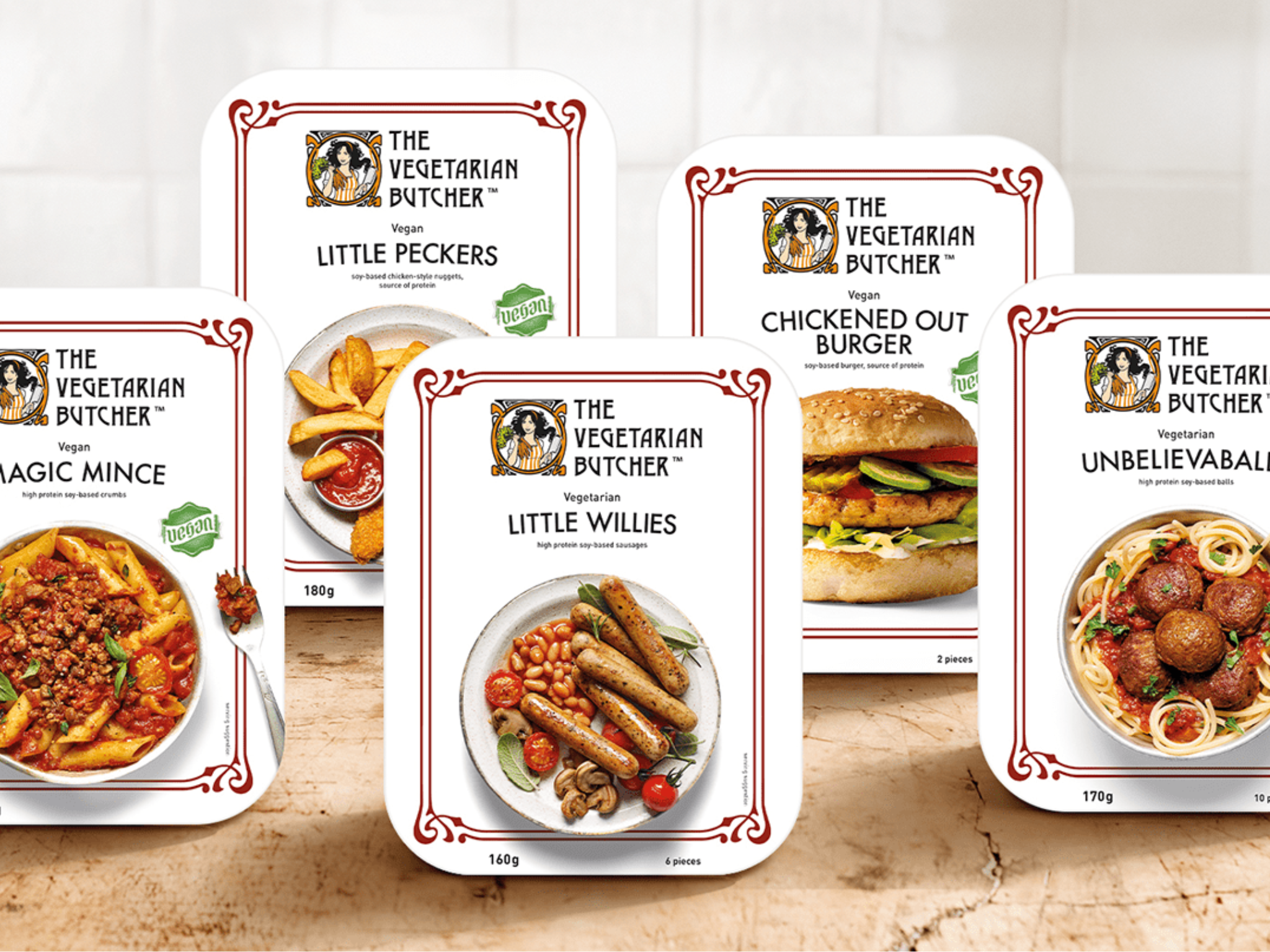Unilever to Offload Plant-Based Meat Brand The Vegetarian Butcher: Report
4 Mins Read
Unilever is in talks with investment bank Piper Sandler to host an auction of The Vegetarian Butcher, the vegan business it bought six years ago.
As it continues to shake up its global food portfolio, Unilever has reportedly put its plant-based meat brand The Vegetarian Butcher up for sale.
The consumer goods giant has hired Piper Sandler to run an auction for the sale of the Dutch vegan business, Sky News reported last night. Industry sources speaking to the outlet suggested that “a number of potential buyers” had already been approached for the deal.
It comes just six years after Unilever first bought the vegan brand, and is the latest move in Unilever’s bid to streamline its focus on its international megabrands.
Approached for comment, a spokesperson for Unilever told Green Queen: “We don’t comment on market rumour or speculation.”
The Vegetarian Butcher records sales growth amid industry struggles

The Vegetarian Butcher is one of the leading plant-based businesses globally. It was established in 2007 by Jaap Korteweg – a ninth-generation livestock farmer – and politician Niko Koffeman, selling meat alternatives out of a butcher shop in The Hague.
Unilever had worked with The Vegetarian Butcher in 2016 to produce a line of vegetarian meatballs under the Unox soup brand, before purchasing the business two years later in December 2019, looking to capitalise on the boom in plant-based eating and consumers’ growing intent to cut back on meat. The terms of the deal remain undisclosed.
Today, its products are available in 55 countries and over 40,000 retail locations, alongside a host of foodservice doors, most notably at Burger King in Europe and Asia. The brand has been recording strong growth in sales volume, according to insiders cited by Sky News, but its likely valuation in a sale is so far unclear.
The development comes during a challenging period for meat alternatives in the Netherlands, whose sales shrunk by 2.5% last year, with volumes down by 7.3%. That said, the market has been showing signs of recovery this year, with data from the early part of 2024 suggesting that weekly average sales volume was 2.4% higher than in 2023.
Even across Europe’s six largest markets, retail sales of vegan meat grew by 4% from 2022-23. But the global headwinds of the last couple of years, combined with a dip in investment, have led to several businesses in the space shutting down, or coming close to it. Just last week, the UK’s largest vegan ready meal brand, Allplants, entered administration after failing to find a buyer following mounting losses.
“It’s clear the market is undergoing a challenging period, but this also presents an opportunity for necessary consolidation,” Matthew Glover, co-founder of the Vegan Food Group, tells Green Queen. The UK holding company evolved from vegan chicken maker VFC in January, and is the owner of brands like Meatless Farm, Clive’s Purely Plants and Tofutown.
“The sale of The Vegetarian Butcher reflects the need for sharper focus and specialisation in this fast-evolving industry. While the space is competitive, the demand for sustainable, animal-free alternatives continues to grow, and I believe there’s still enormous potential for innovative companies to thrive,” he remarked.
Glover is also the co-founder of VC firm Veg Capital and Veganuary, and has highlighted the Vegan Food Group’s aim to become “a vegan Unilever”. “At Veg Capital and Vegan Food Group, we remain optimistic about the future of the sector and committed to supporting its long-term growth,” he said.
Unilever’s move surprising, but not shocking

The decision to put The Vegetarian Butcher up for sale follows comments from Unilever CEO Hein Schumacher to the Financial Times last week, when he said he wanted to “prune” the company’s vast food portfolio, identifying businesses that generate around £1B in annual sales.
This is part of the Growth Action Plan 2030 he introduced when taking over as CEO in July 2023, described as a focus on “doing fewer things, better and with greater impact”. Schumacher wants to focus on the company’s “power brands”, which collectively represent over three-quarters of its turnover, and registered a 5.4% sales growth in the previous quarter (versus 4.5% overall).
Unilever’s food business, meanwhile, is second only to its personal care segment, and has racked up €9.9B in turnover in the first nine months of the year. The two largest brands, Knorr and Hellmann’s, account for 60% of this total.
The Vegetarian Butcher isn’t the only brand on the chopping block. Reuters reported earlier this month that Unilever was looking to sell a number of its Dutch food brands, including Unox and Conimex. The CPG behemoth has also begun demerging its ice cream units in India and Indonesia, and has been mulling a spinoff of its global ice cream division (which includes Ben & Jerry’s and Magnum) – though the latter could now be publicly listed instead of being sold privately.
But it is surprising that Unilever is choosing to do away with The Vegetarian Butcher when you consider its goal to reach €1.5B in annual sales from “plant-based products in categories that would have traditionally used animal-derived ingredients” by 2025.
Then again, Unilever has scaled back a number of its key climate goals, so perhaps it isn’t altogether shocking that it’s looking to sell a plant-based company after all.
This story was updated to include quotes from Unilever and Vegan Food Group’s Matthew Glover.



